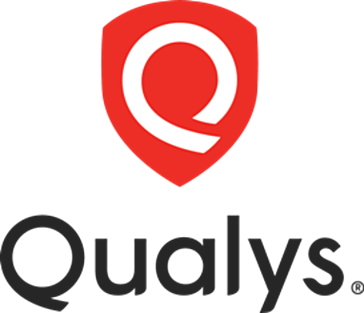Landbot and Qualys integration
Save yourself the work of writing custom integrations for Landbot and Qualys and use n8n instead. Build adaptable and scalable Development, workflows that work with your technology stack. All within a building experience you will love.


How to connect Landbot and Qualys
Create a new workflow and add the first step
In n8n, click the "Add workflow" button in the Workflows tab to create a new workflow. Add the starting point – a trigger on when your workflow should run: an app event, a schedule, a webhook call, another workflow, an AI chat, or a manual trigger. Sometimes, the HTTP Request node might already serve as your starting point.
Build your own Landbot and Qualys integration
Create custom Landbot and Qualys workflows by choosing triggers and actions. Nodes come with global operations and settings, as well as app-specific parameters that can be configured. You can also use the HTTP Request node to query data from any app or service with a REST API.
Supported API Endpoints for Landbot
Get channel data
Returns channel data of a specified channel ID.
List channels
Returns your channels data.
Create hook
Creates a message hook for the specified channel
Delete hook
Deletes a specific message hook from a channel
List WhatsApp templates
Returns your WhatsApp templates data.
List whatsapp templates
Returns whatsapp templates to send with more than one channel.
Opt out customer
Delete opt-ins of a specific customer.
Send template
Sends template message to a specific customer.
Delete customer
Deletes a specified customer by ID.
Get customer data
Returns data of a specified customer ID.
List customers
Returns a list of all customers.
Send WhatsApp template
Sends a WhatsApp template to a specified customer.
Send image
Sends an image to a specified customer.
Send location
Sends a location to a specified customer.
Send text
Sends a text message to a specified customer.
Archive customer
Archives a specified customer by ID.
Unarchive customer
Unarchives a specified customer by ID.
Archive customer
Archives a specific customer.
Assign bot to customer
Assigns a specific customer to a specific bot.
Assign customer to agent
Assigns :customer_id to :agent_id
Assign customer to self
Assigns :customer_id to you
Block customer
Blocks :customer_id
Delete customer
Delete customer :customer_id
Send image
Sends an image message to a specific customer by customer_id.
Send location
Sends a location message to a specific customer by customer_id.
Send text message
Sends a text message to a specified customer.
Unarchive customer
Unarchives a specified customer.
Unassign customer
Unassigns a specified customer.
Unblock customer
Unblocks a specified customer.
Delete field
Deletes field :field_name from customer with id :customer_id
Create customer
Create a new customer entry.
Read customer
Read specific customer details by token.
Update customer
Update details for an existing customer by token.
Read customer
Read customer information based on customer token.
Update customer
Update customer details based on customer token.
Create customer field
Creates a new customer field.
Delete customer field
Deletes a specified customer field.
Create message hook
Creates a new message hook for a specific channel.
Change field value
Changes the value of a specified field for a customer.
Get data
Get data of a specific agent by ID.
Send message
Send a message to a customer with a given token.
Send messages
Send messages to the specified webhook URL.
To set up Landbot integration, add the HTTP Request node to your workflow canvas and authenticate it using a generic authentication method. The HTTP Request node makes custom API calls to Landbot to query the data you need using the API endpoint URLs you provide.
See the example hereThese API endpoints were generated using n8n
n8n AI workflow transforms web scraping into an intelligent, AI-powered knowledge extraction system that uses vector embeddings to semantically analyze, chunk, store, and retrieve the most relevant API documentation from web pages. Remember to check the Landbot official documentation to get a full list of all API endpoints and verify the scraped ones!
Supported API Endpoints for Qualys
List Assets
Fetches a list of all assets.
Create Asset
Creates a new asset.
Get Asset
Fetches details of a specific asset by ID.
Update Asset
Updates a specific asset by ID.
Delete Asset
Deletes a specific asset by ID.
List Scans
Fetches a list of all scans.
Launch Scan
Launches a new scan.
Get Scan
Fetches details of a specific scan by ID.
Update Scan
Updates a specific scan by ID.
Delete Scan
Deletes a specific scan by ID.
List Reports
Fetches a list of all reports.
Generate Report
Generates a new report.
Get Report
Fetches details of a specific report by ID.
Update Report
Updates a specific report by ID.
Delete Report
Deletes a specific report by ID.
List Policies
Fetches a list of all policies.
Create Policy
Creates a new policy.
Get Policy
Fetches details of a specific policy by ID.
Update Policy
Updates a specific policy by ID.
Delete Policy
Deletes a specific policy by ID.
To set up Qualys integration, add the HTTP Request node to your workflow canvas and authenticate it using a predefined credential type. This allows you to perform custom operations, without additional authentication setup. The HTTP Request node makes custom API calls to Qualys to query the data you need using the URLs you provide.
Take a look at the Qualys official documentation to get a full list of all API endpoints
Landbot and Qualys integration details
Save engineering resources
Reduce time spent on customer integrations, engineer faster POCs, keep your customer-specific functionality separate from product all without having to code.
Learn more
The SOAR platform you want
Mountains of monotonous tasks make building and monitoring your workflows a chore. Not anymore.
Learn more
FAQ
Can Landbot connect with Qualys?
Can I use Landbot’s API with n8n?
Can I use Qualys’s API with n8n?
Is n8n secure for integrating Landbot and Qualys?
How to get started with Landbot and Qualys integration in n8n.io?
Looking to integrate Landbot and Qualys in your company?
The world's most popular workflow automation platform for technical teams including
Why use n8n to integrate Landbot with Qualys
Build complex workflows, really fast


